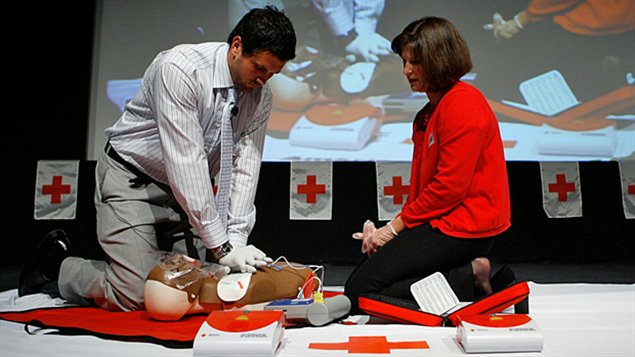Current cardiovascular pulmonary resuscitation or CPR guidelines are appropriate for urban patients with quick access to first responders and hospital but may not be appropriate for those who have to wait longer for professional care. That is the result of a study by Dr. Aaron Orkin, a physician and graduate student with the University of Toronto and the Northern Ontario School of Medicine.
In CPR quick chest compressions are used by bystanders and professionals to try to save the lives of heart attack victims. CPR guidelines used to include delivering successive breaths to the victim as well but that was withdrawn by the American Heart Association in 2010. The change was a result of ten studies indicating the simpler chest compressions would be enough.
However those studies were all conducted in urban settings. Dr. Orkin says further study is needed to see if the results are the same when it takes longer to get professional care.
It’s always better to do something when someone is suffering a heart attack, says Dr. Orkin. People should continue to give chest compression he advises. But if it will be a long time before an ambulance arrives and the bystander knows how to give rescue breaths they should, in his view, go ahead and do it.







For reasons beyond our control, and for an undetermined period of time, our comment section is now closed. However, our social networks remain open to your contributions.